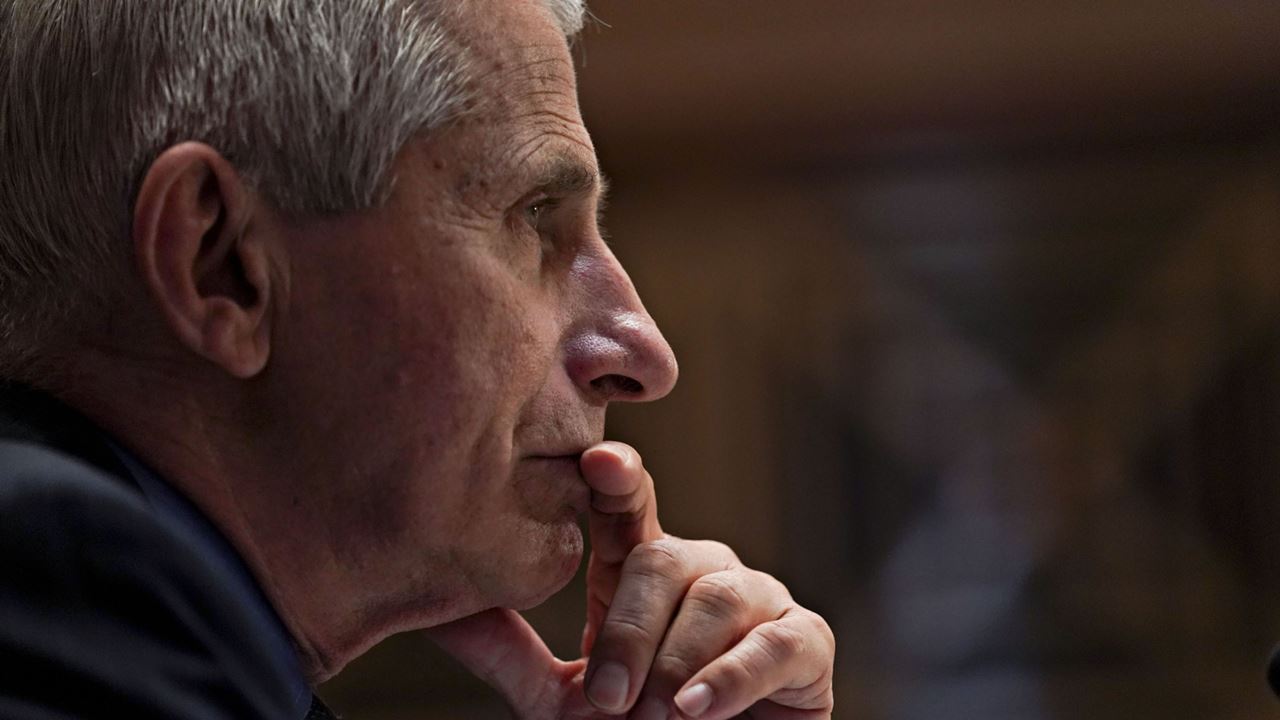U.S. pumps $3.2 billion into covid-fighting antiviral effort

The U.S. is investing $3.2 billion into developing antiviral medicines to combat covid-19 and other viruses with pandemic potential. The aim: develop treatments to be taken at home soon after someone gets sick.
Dubbed the Antiviral Program for Pandemics, the effort led by U.S. health agencies will support the discovery, development and production of antiviral treatments for covid-19 and future viral threats, the Health and Human Services Department said Thursday.
Though vaccines are significantly slowing the spread of covid in wealthy nations, doctors around the world need treatments that can be quickly and easily deployed to those who get sick from the virus and its variants. There exists no simple, inexpensive pill that can prevent those at the earliest stages of infection from later needing to be hospitalized.
Antiviral medicines could serve as an "important complement to existing vaccines," said Anthony Fauci, President Joe Biden's chief medical adviser on the pandemic at a briefing Thursday. That's especially true for people with compromised immune systems for whom the shots may not be as effective, he said.
An orally-administered treatment, like Tamiflu for influenza, is seen as the gold standard to ease the burden of disease on health systems, domestically and abroad. Fauci also noted that antiviral medicines could serve as an extra line of defense against emerging virus variants.
The program will help advance such antiviral candidates through early-stage safety studies, positioning them to be able to quickly move into late-stage efficacy studies.
The collaboration brings together the National Institutes of Health and the Biomedical Advanced Research and Development Authority.
Of the funds allocated to the effort, $1 billion will go to conducting pre-clinical and clinical trials, $300 million will go to research and lab support, and nearly $700 million will be directed to Barda and NIH's National Institute of Allergy and Infectious Diseases unit to aid with development and manufacturing.
The remaining $1.2 billion will go to biomedical partnerships initially geared at discovering drugs to combat coronaviruses, called Antiviral Drug Discovery Centers for Pathogens of Pandemic Concern.
The amount the U.S. has spent developing antiviral treatments for covid-19 pales in comparison to the many billions it has spent on vaccine trials and production.
Francis Collins, the director of the NIH, said the U.S. had sifted through hundreds of antiviral candidates but come up short. Its one covid-fighting antiviral, Gilead Sciences' IV drug remdesevir, speeds the recovery of hospitalized patients but hasn't been proven to reduce deaths.
"I wish I could say that we got those home runs, but we got some singles and doubles," Collins said at a Wednesday event held by the Biotechnology Innovation Organization, an industry trade group.
Around the world, other governments are also looking to bolster their antiviral pipelines. In April, the U.K. launched a new Antivirals Taskforce, which aims to approve two covid-19 antivirals for use this fall. A month later, the European Commission announced it will seek to make available three new antiviral medicines to combat the disease this October.
On Thursday, Fauci said the U.S. government's new program could accelerate promising covid-fighting candidates already in development, such as pills being tested by Merck, Pfizer and Roche.
Earlier this month, the U.S. entered a $1.2 billion agreement with Merck for 1.7 million courses of its experimental antiviral pill, called molnupiravir, should it be authorized by U.S. regulators.
Developed with Ridgeback Biotherapeutics, the oral treatment is in a final-stage study of non-hospitalized patients with confirmed cases of covid-19 and at least one risk factor associated with poor disease outcomes.
Merck expects data from the trial in September or October, executives said in April, and could approach the Food and Drug Administration for authorization within the year.
"Having additional FDA-authorized antiviral medicines available within a year would be a major breakthrough in ongoing efforts to combat covid-19 and protect the public," HHS said in statement.
